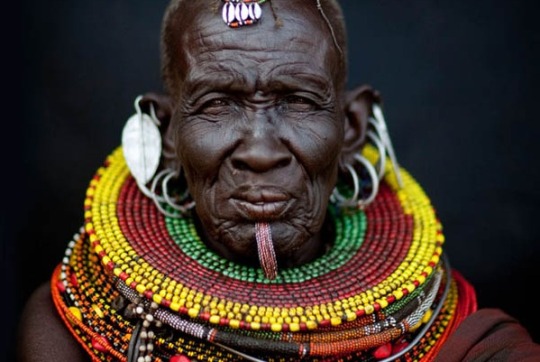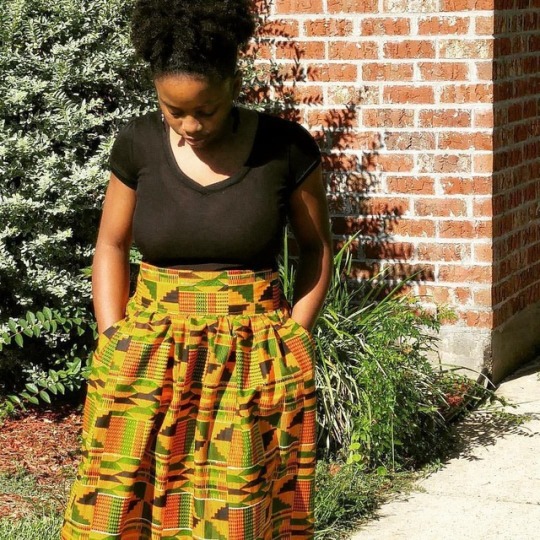#Guinean proverb
Quote
Knowledge without wisdom is like water in the sand.
Guinean proverb
#Guinean proverb#proverb#proverbs#book of proverbs#quote#quotes#Guinean proverbs#wisdom#knowledge#book of khidr#bookofkhidr
59 notes
·
View notes
Text

View on Twitter
We cannot love that which we do not know. — Guinean proverb
(Source)
1 note
·
View note
Link
The short essays respond to the following prompt:
In the wake of #HAUtalk and in the face of conversations and debates about decolonization; the #MeToo movement; academic precarity; academic racism, sexism, and elitism; the horrifying state of the planet today; and open-access publishing, what kind of anthropology do you see as important and relevant for the future of the field and the future of training students?
Here are a few excerpts from essays I particularly enjoyed
Introduction: From Reciprocity to Relationality by Paige West
the recognition that many of the foundational concepts in anthropology, concepts like reciprocity, were taken from Indigenous peoples and used by European scholars to lay the groundwork of the field with little or no return to Indigenous communities. For example, the Māori concept of hau, taken and used by Marcel Mauss in The Gift, became the foundation for the entire field of economic anthropology
Regenerating Anthropologies with Hau by Ty P. Kāwika Tengan
hau
1. n. A lowland tree (Hibiscus tiliaceus) [. . .]
2. nvs. Cool . . . ice . . . dew, snow . . . a cool breeze [ . . .]
4. [. . .] to offer, as a sacrifice or prayer.
Hau wawā ka nahele. A din in the forest. The twentieth-century ‘Ōiwi (Indigenous Hawaiian) ethnographer Mary Kawena Pukui (1983, 59) explained that this proverb references “rumors and gossip abroad”—the kind circulating before the #hautalk hurricane hit this summer and an anthropological hau wawā (medley of simultaneous talking) ensued. In crafting a response to Paige West’s prompt for this series, I heed Zoe Todd’s call for a “decolonial (re)turn in anthropology” that reckons with the discipline’s coloniality, of which the latest example is the journal HAU’s appropriation of the Māori idea of hau through the work of Marcel Mauss. I have considered the questions posed by the Mahi Tahi collective to the leadership of HAU (and all anthropologists) as to how or whether they “meaningfully engage with contemporary discussions and understandings of this Māori concept,” think about “the systematic mispronunciation of the word,” and hope to foster “mutually beneficial relationships . . . with Māori scholars and communities.” I note also Mahi Tahi’s insistence that “decolonizing . . . means challenging the hierarchies of knowledge that systematically exclude” Black, Indigenous, and other scholars of color.
The Future of Anthropology Starts from Within by Jaskiran Dhillon
Those of us working from a critical, radical position within the academy, often as scholars and educators of color, know that academic institutions are part of the problem; just read Craig Wilder’s (2013) book Ebony and Ivory if you need convincing.
...to whom are we accountable as scholars, as departments, and as a discipline? We ought to be accountable to the communities across the globe who have been subjected to the colonial violence enacted by anthropology and to the rising Indigenous, Black, and queer graduate students and junior scholars who are attempting to radically transform the discipline from the inside. I have learned so much from my Native comrades about what it means to develop relationships of trust and longstanding commitment to place and people, both inside and outside of anthropology.
Melanesian Anthropology Em Nem Nating by Fiona Hukula
In 2015, the Malinowski’s Legacy conference was held in Alotau, Papua New Guinea to commemorate the work of the renowned anthropologist Bronislaw Malinowski, who first arrived in Papua New Guinea in 1921... It is interesting to note that in the almost one hundred years that have passed since Malinowski arrived in Papua New Guinea, fewer than ten Papua New Guineans have earned a PhD in anthropology. Although the subject is being taught at an undergraduate level at the University of Papua New Guinea, it has not generated extensive interest among students, especially at the postgraduate level. In my discussions with fellow academics and colleagues in the Pacific region, anthropology is often seen as a remnant of colonialism
Beyond the Hot Take by Melinda Hinkson
Accusations of dispossession, misappropriation, disempowerment, and exploitation all too often land us anthropologists in a place of mutually exclusive commitments. The hot take entrenches rather than transcends this deadlock.
A recent case from Australia illustrates my point. Colleagues recently published a piece about the Aboriginal names for ten Melbourne suburbs, the result of painstaking research with the notebooks of nineteenth-century anthropologist Alfred William Howitt. The published article acknowledged the Wurundjeri Council, the local traditional owner representative body for Melbourne.
But immediately following its publication, a series of Twitter posts angrily dismissed the research for using terms like lost and forgotten rather than naming colonial brutality as the practice through which languages and place names were forcefully and deliberately erased. “Forgotten fuckoff,” tweeted one respondent. Fair enough. But must the decolonizing urge dismiss research that is itself conducted in the spirit of decolonization?
Here is my point: at a time when settler-colonial nation-states are brutally bearing down on Indigenous people with neoliberal force, is it possible to transcend the standoff between anthropology and Native/Indigenous standpoints? What would it take to establish different engagements between substantial scholarship and decolonizing critique?
...
Or, to put it another way: can anthropology hold together a genuinely refigured relationship to Indigenous communities and local knowledge, and to its own appropriative tendencies, while at the same time championing the role of critical, abstract techniques for analysis and comparison? I want to suggest that it can, but only so long as anthropologists stay with the trouble and acknowledge incommensurability as integral to our endeavor.
The tension I have in mind is captured to some extent by George Marcus’s (1997) provocation, now two decades old, that complicity rather than rapport best characterizes the complicated, ironic, and morally ambiguous nature of the fieldwork relationship. More recently, Ruth Gomberg-Muñoz (2018) has called out the distinction between complicity and allyship as vital to the disruption of the racialized boundaries of innocence and criminality.
1 note
·
View note
Quote
Knowledge without wisdom is like a water in the sand
Guinean Proverb
0 notes
Photo

African Proverbs and Inspiring Quotes
Wisdom is wealth!
One thing I respect deeply about Africa is the treasure of wisdom our ancestors have handed down to us. While some of our leaders may have forgotten them, the rest of us don’t need to. From prudent sayings on wisdom itself, to judicious encouragements, warnings and even quirky advice on learning, patience, unity, wealth, poverty, community, family, love and marriage, these quotes will inspire you to be the best you can possibly be.
African Quotes on Wisdom
Wisdom is wealth. ~ Swahili
Wisdom is like a baobab tree; no one individual can embrace it. ~ Akan proverb
The fool speaks, the wise man listens. ~ Ethiopian proverb
Wisdom does not come overnight. ~ Somali proverb
The heart of the wise man lies quiet like limpid water. ~ Cameroon proverb
Wisdom is like fire. People take it from others. ~ Hema (DRC) proverb
Only a wise person can solve a difficult problem. ~ Akan proverb
Knowledge without wisdom is like water in the sand. ~ Guinean proverb
In the moment of crisis, the wise build bridges and the foolish build dams. ~ Nigerian proverb
If you are filled with pride, then you will have no room for wisdom. ~ African proverb
A wise person will always find a way. ~ Tanzanian proverb
Nobody is born wise. ~ African proverb
A man who uses force is afraid of reasoning. ~Kenyan proverb
Wisdom is not like money to be tied up and hidden. ~ Akan proverb
72+ African Wise Proverbs and Inspiring Quotes

http://www.afrikanheritage.com/72-african-wise-proverbs-and-inspiring-quotes
0 notes
Photo

African Proverbs 2 Here's a Guinean Proverb: Knowledge of leadership is not plucked from the air, one is born with it.
0 notes
Text
After Much Hardship, Refugee Finds a Home With French Family
AP, Feb. 12, 2017
PALAISEAU, France--When the Gandais family decided to host a refugee at their home in a middle-class neighborhood outside Paris, they assumed their guest would be a Syrian or an Iraqi fleeing war.
Instead, a 25-year-old journalist with a young family in the former French colony of Guinea is the person sleeping gratefully in their spare bedroom, sharing unfamiliar food and nourishing hopes for a better life.
As anti-immigrant sentiment and anti-Muslim views find footing in Europe and elsewhere, the Gandais family has found welcoming a refugee into the house to be a source of happiness.
“The experience is much more enriching than costing,” says Loic Gandais, 56, a public servant for the Paris region.
His wife, Murielle Gandais, 54, first raised the idea last summer, responding to the French government’s call for solidarity amid the migrant crisis in Europe. She and Loic have three adult children in their 20s --two of them still living at home. Everyone quickly agreed they wanted to be a host family.
During a process not dissimilar to adoption, a humanitarian organization, Samu social de Paris, visited the Gandais’ house to make sure they had a suitable bedroom available. A psychologist spoke with family members about their motivations and expectations for sheltering a stranger who had experienced difficulties they would find hard to comprehend.
“Someone’s coming who is fragile because he has experienced difficult things, is coming to France and is alone. That’s not easy. But at the same time, it’s someone who has things to share,” Murielle Gandais says.
The shy, tall young man selected to stay with them was Cheikh Ahmed, a married father of 4-year-old twins from Guinea. He left his country and family behind two years ago because he felt his life was in danger from his reporting on a sensitive issue.
He asked for his last name and other personal details to be withheld because he still fears for his safety.
Cheikh Ahmed lived for two months on the streets of Paris in a filthy camp of migrants periodically evacuated by police. He begged for money on the subway and saved enough to have his personal documents sent from Guinea to France so he could apply for asylum as a political refugee.
From the street, he went from staying with a Guinean friend to an overcrowded hotel paid for by social services until finally being welcomed by the Gandais family. Sitting on his wide, comfortable bed, smiling widely, Cheikh Ahmed says he feels as if his dignity has been restored.
“Imagine living on the streets. It is not a life,” he said. “You cannot properly wash, you don’t eat well and when you sleep, often police or other people come to wake you up.”
Cheikh Ahmed is a Muslim, hosted by a Christian family, but religion has not been a barrier to intimacy or acceptance on either side. He speaks French, English, a bit of Spanish and the three national languages of Guinea--Susu, Pular and Maninka.
Murielle and Loic are used to having a full house between their children’s friends and relatives. Murielle recalls it took Cheikh Ahmed a while to open up about his life.
After three months with the Gandais, Cheikh Ahmed is at ease in the kitchen, sets the table and helps himself to food. He has gotten used to their rules and rituals, such as having the housekeeper clean his room and clothes as she does for other family members.
He feels comfortable enough to laugh out loud at the dinner table, although he still can’t stomach eating cheese--a staple of the French diet, he jokes.
Now that he has a part-time job as a salesman at a clothing store, Cheikh Ahmed is starting to build a life in France. The Gandais often check on him, calling to see if everything is OK when he’s out and about. He can stay with his host family as long as he needs to afford his own apartment.
“I feel loved. I feel surrounded by people who care about me,” he said.
Cheikh Ahmed says he looks forward to the future, when he will bring his wife and children to France.
“Everyone gets a turn at the hairdresser,” he said, quoting an African proverb that in Guinea is the equivalent of saying “good things come to those who wait.”
France granted refugee status to 26,531 people last year, compared to the 256,136 granted asylum in Germany. Samu social de Paris started recruiting host families in June, focuses on refugees who have obtained asylum but still are living in shelters or other short-term accommodations, if not in the street, program chief Nadege Letellier said.
About 30 French families have joined, and they are looking for others. The program hopes to place at least 336 refugees in the Paris region over the next two years.
Most come from Afghanistan, Tibet, and several African countries like Sudan and Eritrea. Many are men under age 25 who have fled war, violence and persecution due to their ethnicity, sexual orientation or political activities. The program includes a few women as well.
Loic Gandais deeply regrets the “wave of xenophobia and racism” he thinks is being encouraged in France and Europe by populist far-right parties. Even though there has been a temporary stay on U.S. President Donald Trump’s ban on travelers and immigrants from seven predominantly Muslim countries, he calls that policy “a nightmare.”
Murielle Gandais encourages other families to reach out to refugees, saying there is nothing to fear.
“There might be some difficulties, but in the end there can only be a positive outcome,” she said.
2 notes
·
View notes
Photo

✨Knowledge without wisdom is like water in the sand. ~ Guinean proverb✨ . . Shop 🛒 bit.ly/confidentforever (Click link in bio) . . Follow ⬇️ @kslaughtercustoms @kslaughtercustoms @kslaughtercustoms . . #blackhairmag #naturalhairjunkies #curlspoppin #teamnatural_ #blackandbeautiful #turbans #princess #queens #queen #crown #haircrown #headscarf #skinlikebrass #protectivestyles #modestmovement #amazingnaturalhair #naturallycurly #washngo #curlyhairkillas #howtonaturalhair #type4hair #naturalhairrocks #respectmyhair #myhaircrush #twistout #kinkstocurls #curlsunderstand #teamnaturalhair #3bhair #naturalhaircommunity (at Baton Rouge, Louisiana) https://www.instagram.com/p/Bq3AqnDnlbW/?utm_source=ig_tumblr_share&igshid=1a90vyk67fdac
#blackhairmag#naturalhairjunkies#curlspoppin#teamnatural_#blackandbeautiful#turbans#princess#queens#queen#crown#haircrown#headscarf#skinlikebrass#protectivestyles#modestmovement#amazingnaturalhair#naturallycurly#washngo#curlyhairkillas#howtonaturalhair#type4hair#naturalhairrocks#respectmyhair#myhaircrush#twistout#kinkstocurls#curlsunderstand#teamnaturalhair#3bhair#naturalhaircommunity
0 notes
Text
“He who does not cultivate his field, will die of hunger.”
Guinean proverb.
0 notes
Link
Knowledge without wisdom is like water in the sand. - Guinean proverb #quote
0 notes
Photo

"Knowledge without wisdom is like water in the sand." - Guinean proverb https://ift.tt/2th6SOg
0 notes
Link
Proverbs are being described as sources of concrete truth and most times they come with very deep meanings, that you can observe if you hear/read, pause and ponder
Some short and popular proverbs from Africa about wisdom
• Wisdom is wealth. ~ Swahili
• Wisdom is like a baobab tree; no one individual can embrace it. ~ Akan proverb
• The fool speaks, the wise man listens. ~ Ethiopian proverb
• Wisdom does not come overnight. ~ Somali proverb
• The heart of the wise man lies quiet like limpid water. ~ Cameroon proverb
• Wisdom is like fire. People take it from others. ~ Hema (DRC) proverb
• Only a wise person can solve a difficult problem. ~ Akan proverb.
• Knowledge without wisdom is like water in the sand. ~ Guinean proverb
• In the moment of crisis, the wise build bridges and the foolish build dams. ~ Nigerian proverb
• If you are filled with pride, then you will have no room for wisdom. ~ African proverb
• A wise person will always find a way. ~ Tanzanian proverb
• Nobody is born wise. ~ African proverb
• A man who uses force is afraid of reasoning. ~Kenyan proverb
• Wisdom is not like money to be tied up and hidden. ~ Akan proverb
0 notes
Photo

Those who do evil, expect evil~ Guinean proverb #guinea #wisdomwednesday #IamAfrican
0 notes